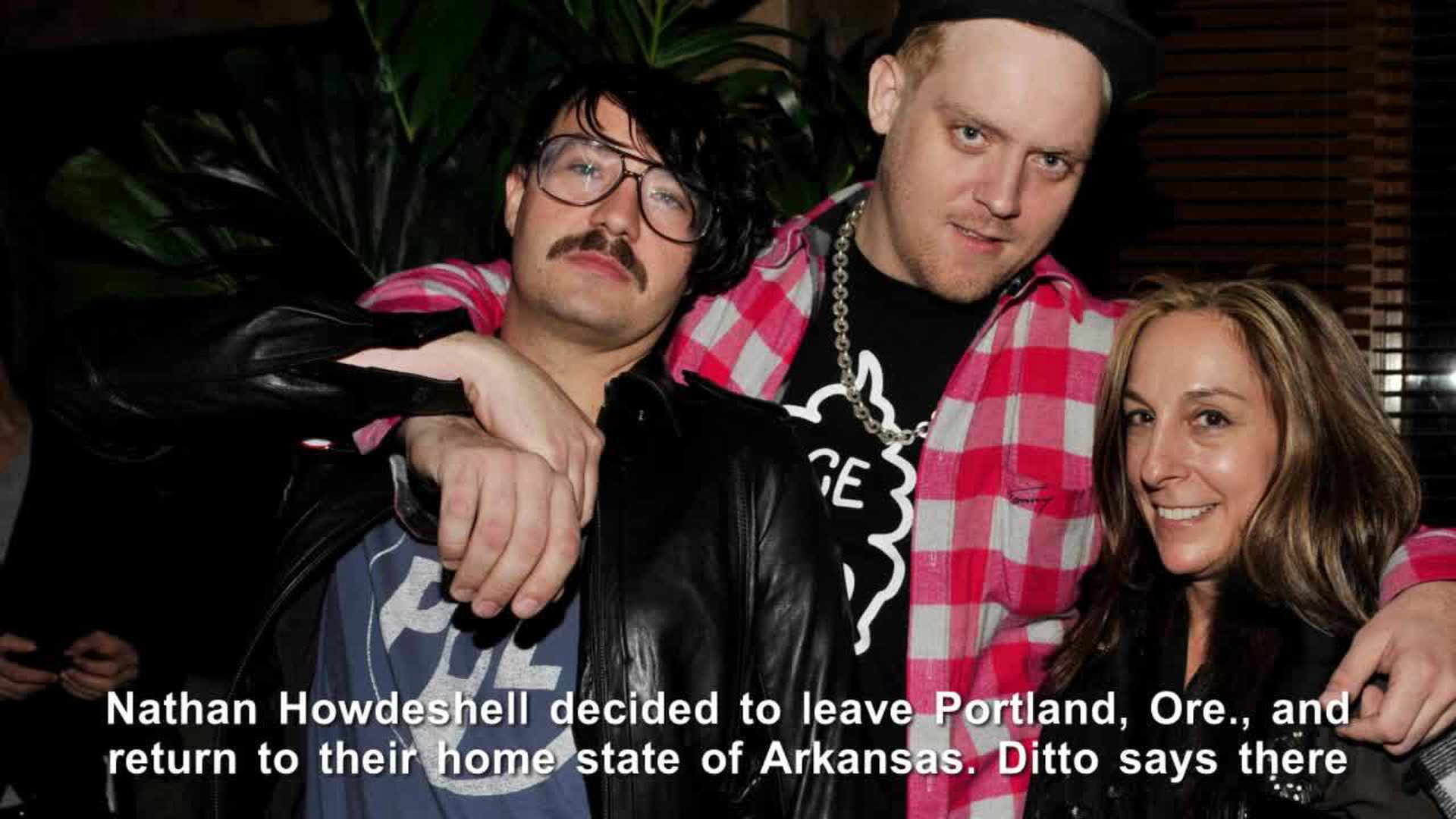Breaking up is tough--especially when it's with your bandmates of 17 years. For former Gossip front woman Beth Ditto, that breakup came after 2012's A Joyful Noise, the group's fifth album, which was released after member Nathan Howdeshell decided to leave Portland, Ore., and return to their home state of Arkansas. Ditto says there was no falling out. The split was swift and smooth.
"I was trying to write for the Gossip but without the Gossip, and it just felt wrong," recalls the 36-year-old singer, sitting in pajamas in her house in Portland, where she lives with her wife, Kristin Ogata. "For a while I couldn't put my finger on it. Then I just sent Nathan a text and said, 'I think I'm done and I'm just going to do my own thing.' He was like, 'Let that baby fly!' And we never really spoke about it again."
Ditto toyed with flying solo in 2011, when she released her self-titled EP, produced by electronic dance duo Simian Mobile Disco. But now she's officially entered her "single phase." Her new debut full-length, Fake Sugar, out on Virgin Records, bears traces of Gossip -- the chugging rush of synths on "Go Baby Go," the lite-punk sensibility of "Oo La La"--but the album feels more like her, mining sounds from pop, blues, and country. Replete with Southern charm, it harks back to Ditto's roots.
"I spent a good part of my adulthood running away from that, and I guess you could say processing the bad parts of it and really finding out who I was," she says. Ditto was inspired by her adolescence, when her father, who passed away in 2011, would play artists like Patsy Cline. "It was time to re-examine that," says Ditto, "and look at the really awesome things that came from being Southern and from the
Bible Belt."

As she explains it, Fake Sugar is the tale of two relationships. One finds Ditto wallowing in the heartache of separating from Nathan: "It was the longest relationship I'd been in," she says. The other explores the surprising difficulties that emerge after a couple's honeymoon period. Ditto and Ogata, who've known each other since their late teens, tied the knot in Hawaii in 2013 and legally wed the following year.
For Ditto, who considered calling her album Music for Moms as a playful dig at her newfound domesticity, that meant learning how to be a better partner and embracing the responsibilities that come with it.
"You have to give your partner what they need," she says. "You have to close off a part of yourself and shut down whatever your needs are in the moment. Those are the hardest compromises, and I don't think people can prepare you for what you learn in the first year of marriage. It's so crazy."
At its heart, Fake Sugar is speaking particularly to the gay experience and the complications that can arise from queer romance. On the soaring power ballad "Love in Real Life," the singer confesses, "Nothing ever is perfect / There's the good and the bad / Though it's never on purpose, sometimes I make you sad." Says Ditto, "When you hear queer people singing love songs, it speaks to you. You know that this is about your culture specifically. I think Fake Sugar is such a queer record, because the love [I'm singing about] is really fluid and crosses a lot of different boundaries. That's inherently queer
to me."
Ditto has been open about her queerness from the start of her career, partly because she's never really been shy about anything. In her Gossip days, she'd often perform in just a bra and shorts, and she's unapologetic and celebratory when it comes to her weight; in the midst of writing and recording Fake Sugar, she launched two plus-size fashion lines.
It's no surprise, then, that she has little concern for how fans and critics might receive her first solo outing. "There's nothing I can do about it," Ditto says. "Of course you want people to like it, but I think when you come from a punk-feminist-queer perspective, you're used to a little bit of shadiness from straight mainstream media. But you know, that's none of my business."
Like what you see here? Subscribe and be the first to receive the latest issue of Out. Subscribe to print here and receive a complimentary digital subscription.



























































































